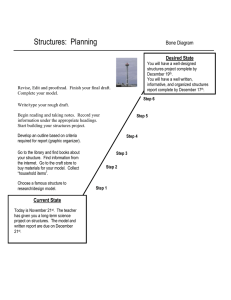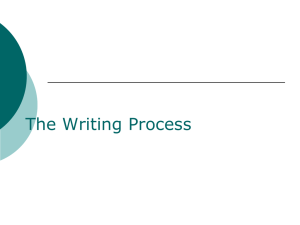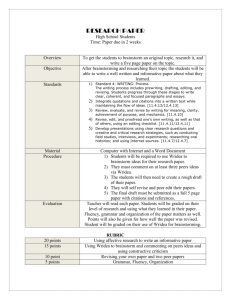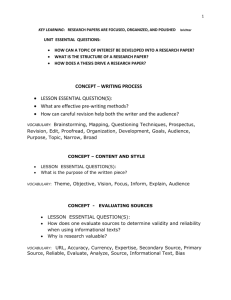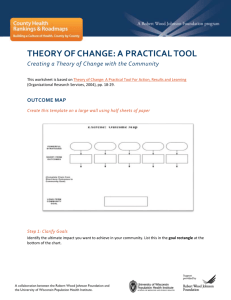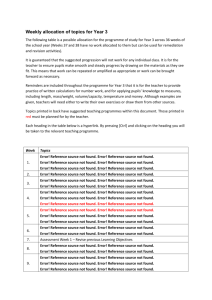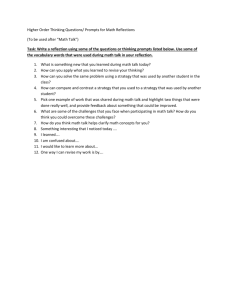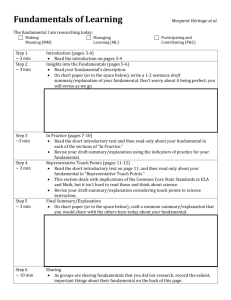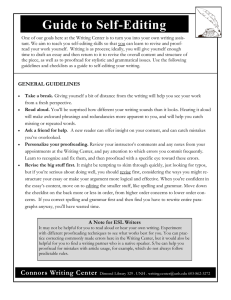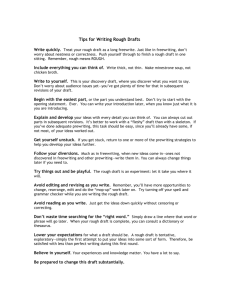WRITE ESSAYS FOR ALL OCCASIONS
advertisement
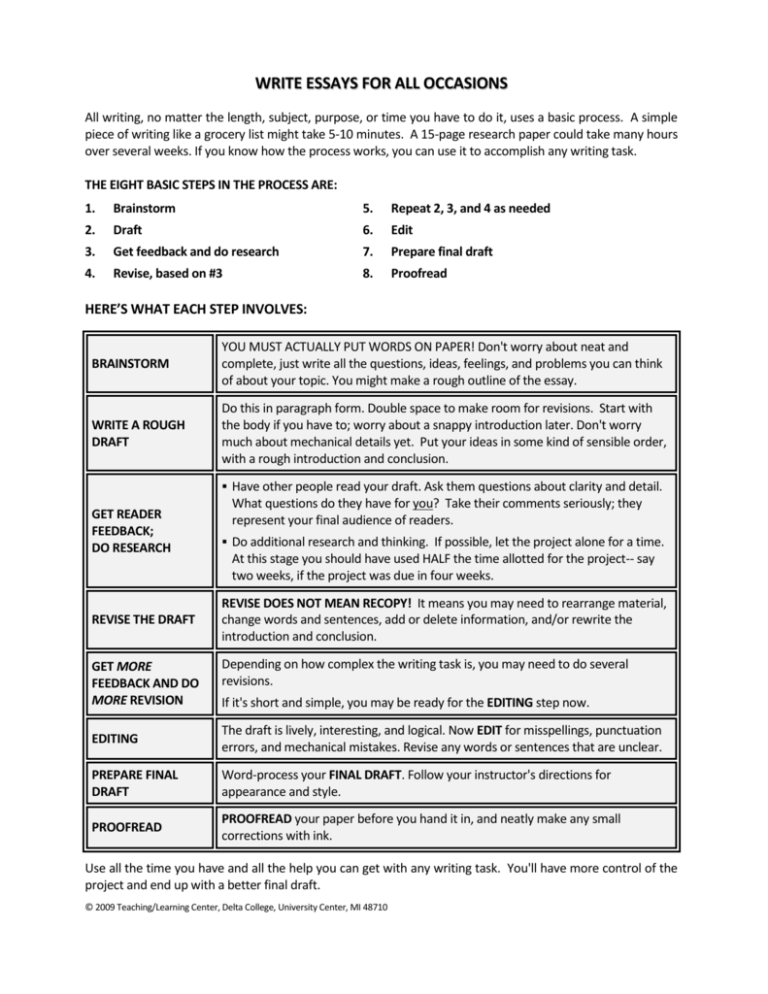
WRITE ESSAYS FOR ALL OCCASIONS All writing, no matter the length, subject, purpose, or time you have to do it, uses a basic process. A simple piece of writing like a grocery list might take 5-10 minutes. A 15-page research paper could take many hours over several weeks. If you know how the process works, you can use it to accomplish any writing task. THE EIGHT BASIC STEPS IN THE PROCESS ARE: 1. Brainstorm 5. Repeat 2, 3, and 4 as needed 2. Draft 6. Edit 3. Get feedback and do research 7. Prepare final draft 4. Revise, based on #3 8. Proofread HERE’S WHAT EACH STEP INVOLVES: BRAINSTORM YOU MUST ACTUALLY PUT WORDS ON PAPER! Don't worry about neat and complete, just write all the questions, ideas, feelings, and problems you can think of about your topic. You might make a rough outline of the essay. WRITE A ROUGH DRAFT Do this in paragraph form. Double space to make room for revisions. Start with the body if you have to; worry about a snappy introduction later. Don't worry much about mechanical details yet. Put your ideas in some kind of sensible order, with a rough introduction and conclusion. Have other people read your draft. Ask them questions about clarity and detail. GET READER FEEDBACK; DO RESEARCH REVISE THE DRAFT GET MORE FEEDBACK AND DO MORE REVISION What questions do they have for you? Take their comments seriously; they represent your final audience of readers. Do additional research and thinking. If possible, let the project alone for a time. At this stage you should have used HALF the time allotted for the project-- say two weeks, if the project was due in four weeks. REVISE DOES NOT MEAN RECOPY! It means you may need to rearrange material, change words and sentences, add or delete information, and/or rewrite the introduction and conclusion. Depending on how complex the writing task is, you may need to do several revisions. If it's short and simple, you may be ready for the EDITING step now. EDITING The draft is lively, interesting, and logical. Now EDIT for misspellings, punctuation errors, and mechanical mistakes. Revise any words or sentences that are unclear. PREPARE FINAL DRAFT Word-process your FINAL DRAFT. Follow your instructor's directions for appearance and style. PROOFREAD PROOFREAD your paper before you hand it in, and neatly make any small corrections with ink. Use all the time you have and all the help you can get with any writing task. You'll have more control of the project and end up with a better final draft. © 2009 Teaching/Learning Center, Delta College, University Center, MI 48710
